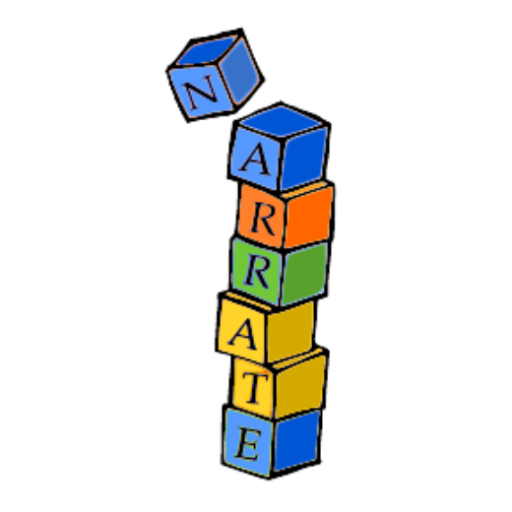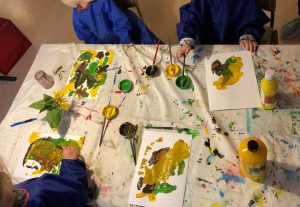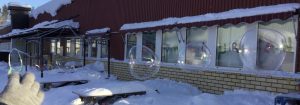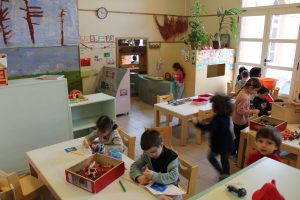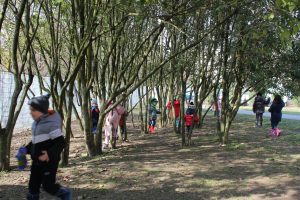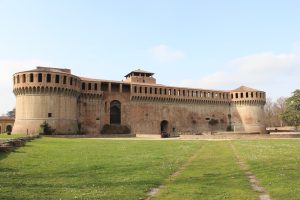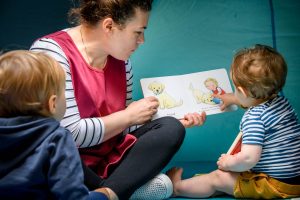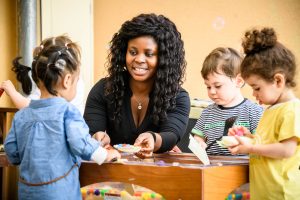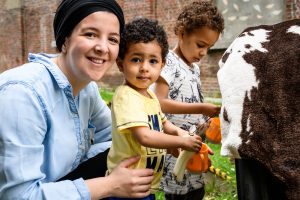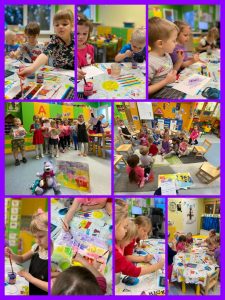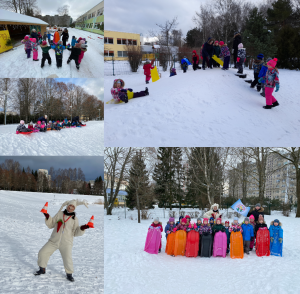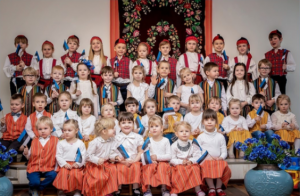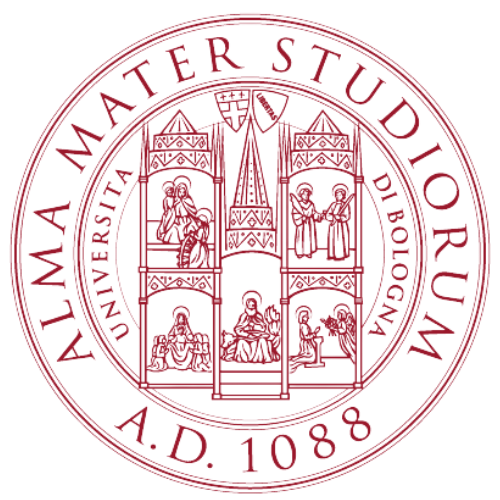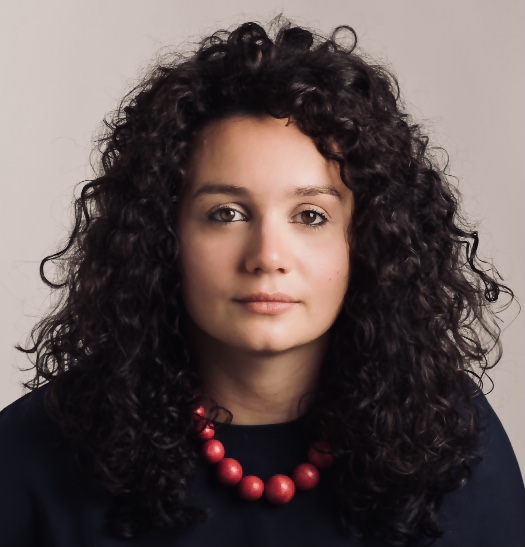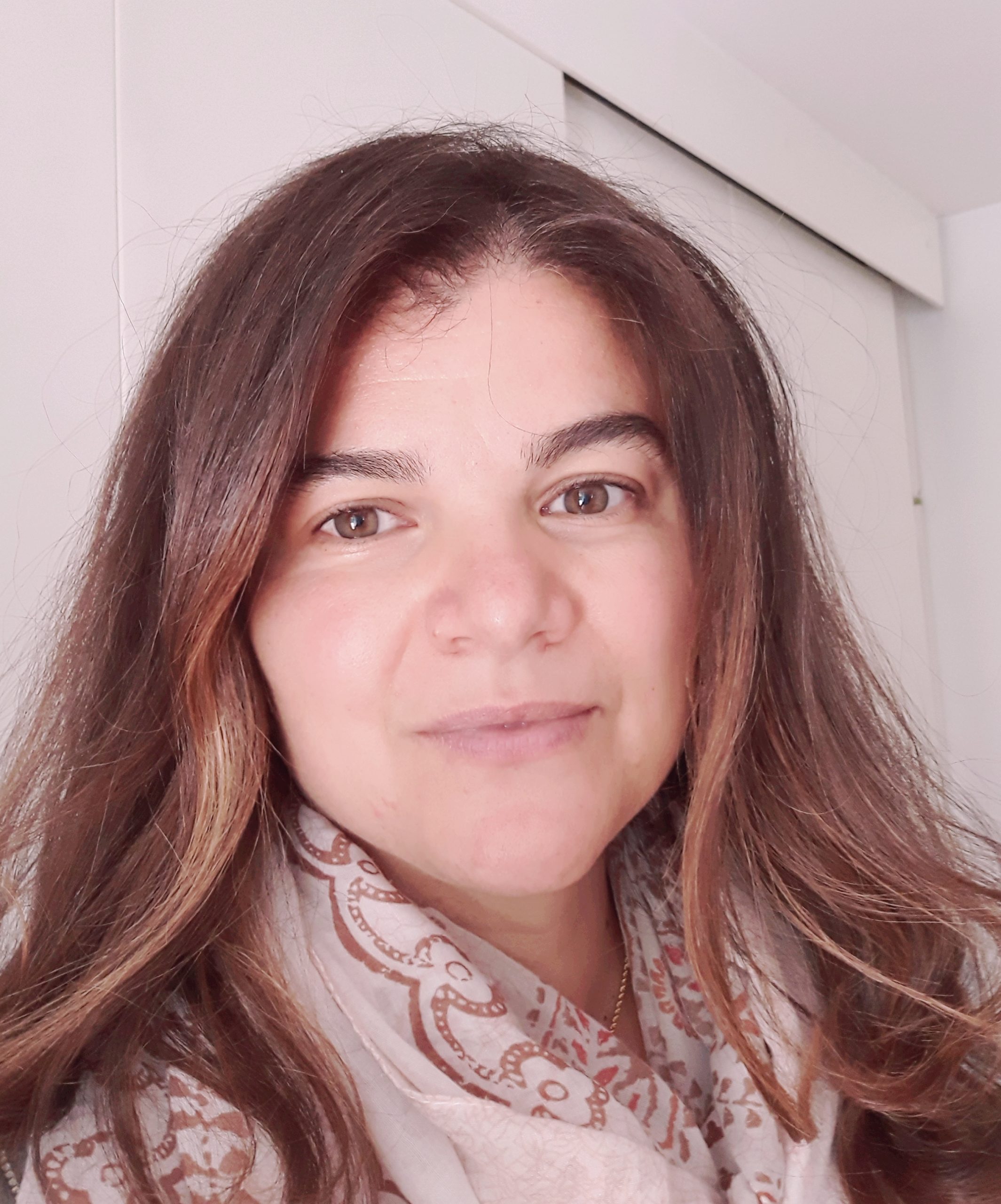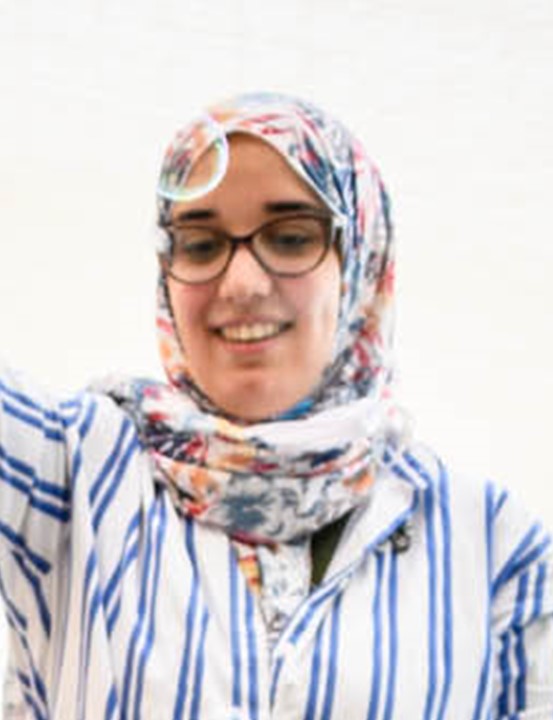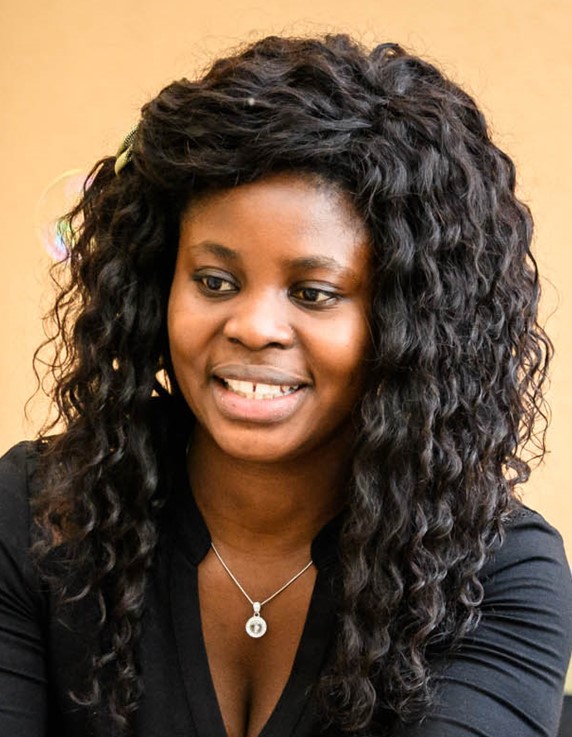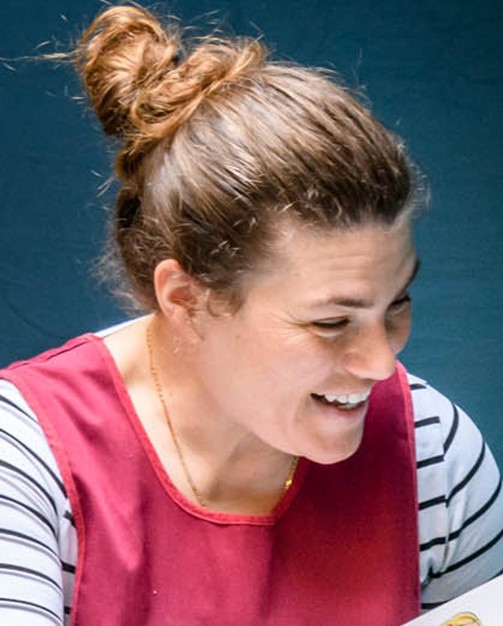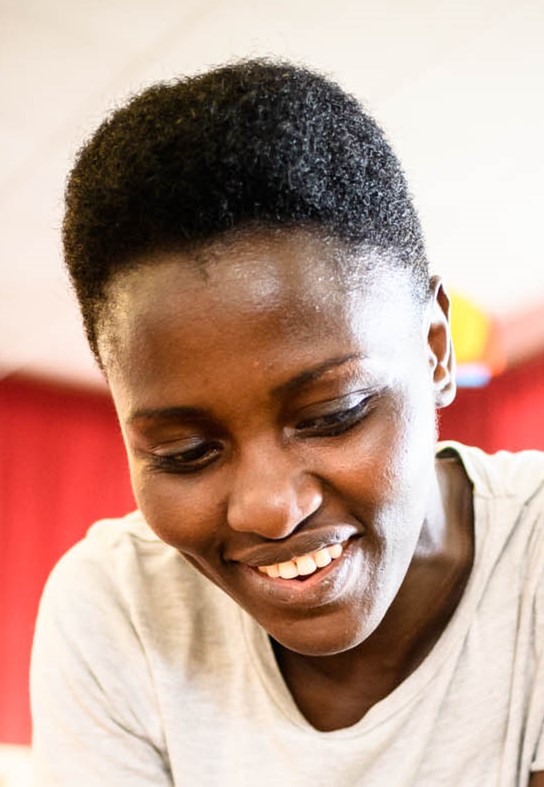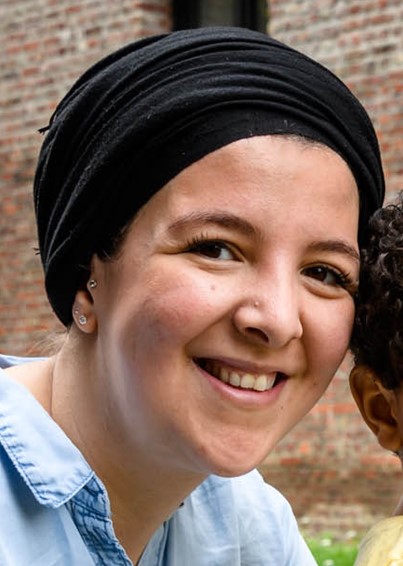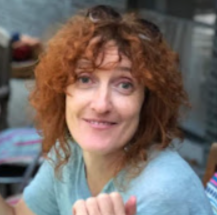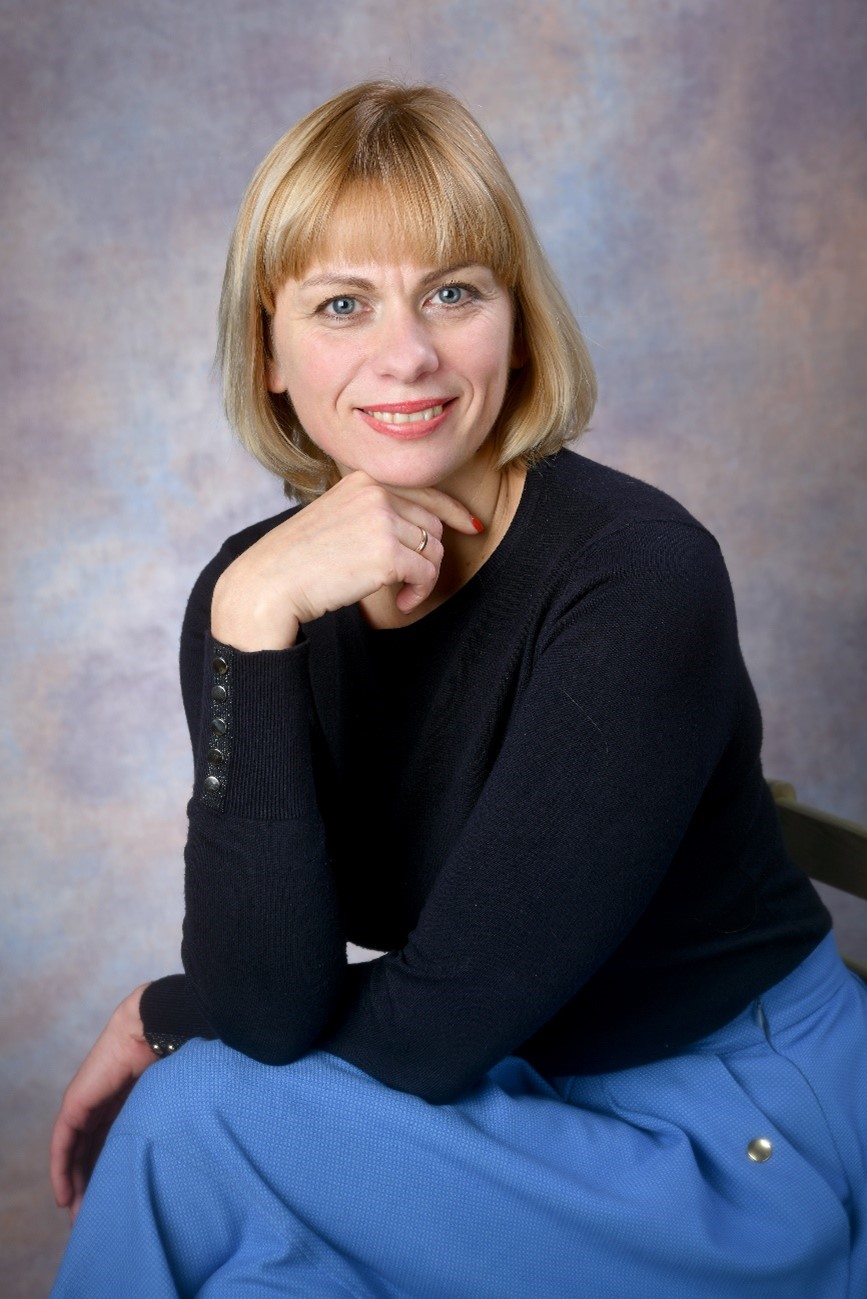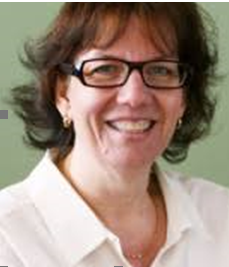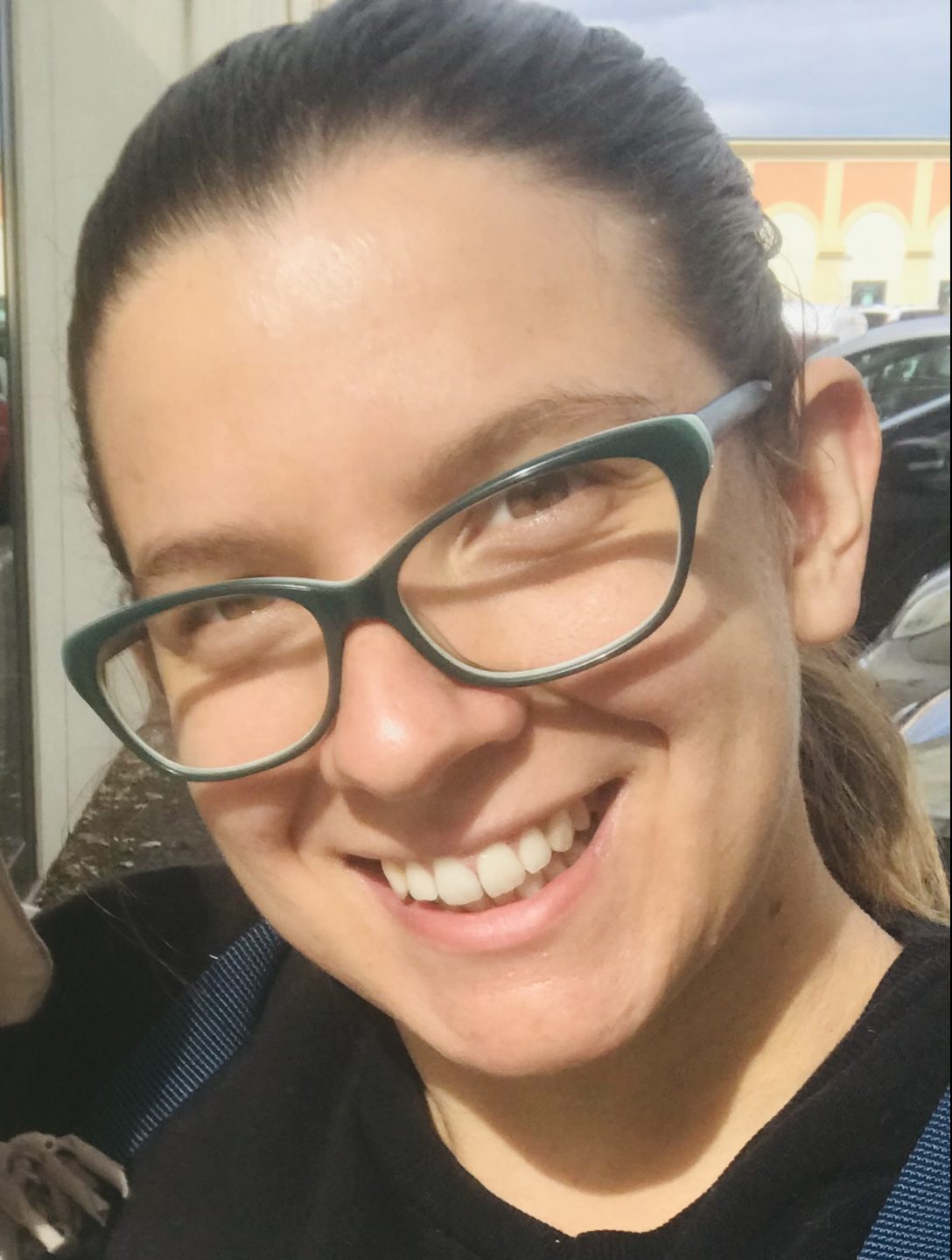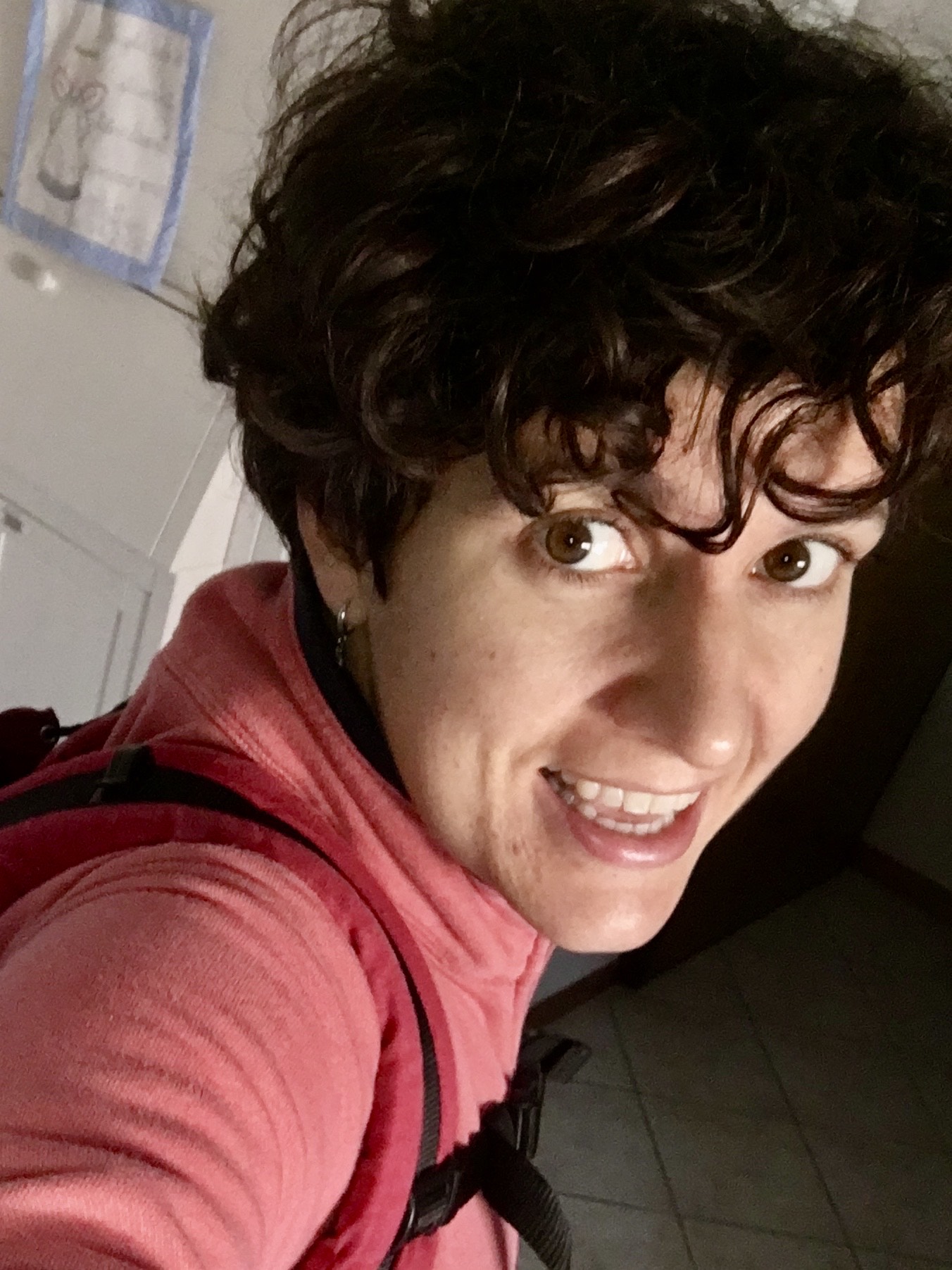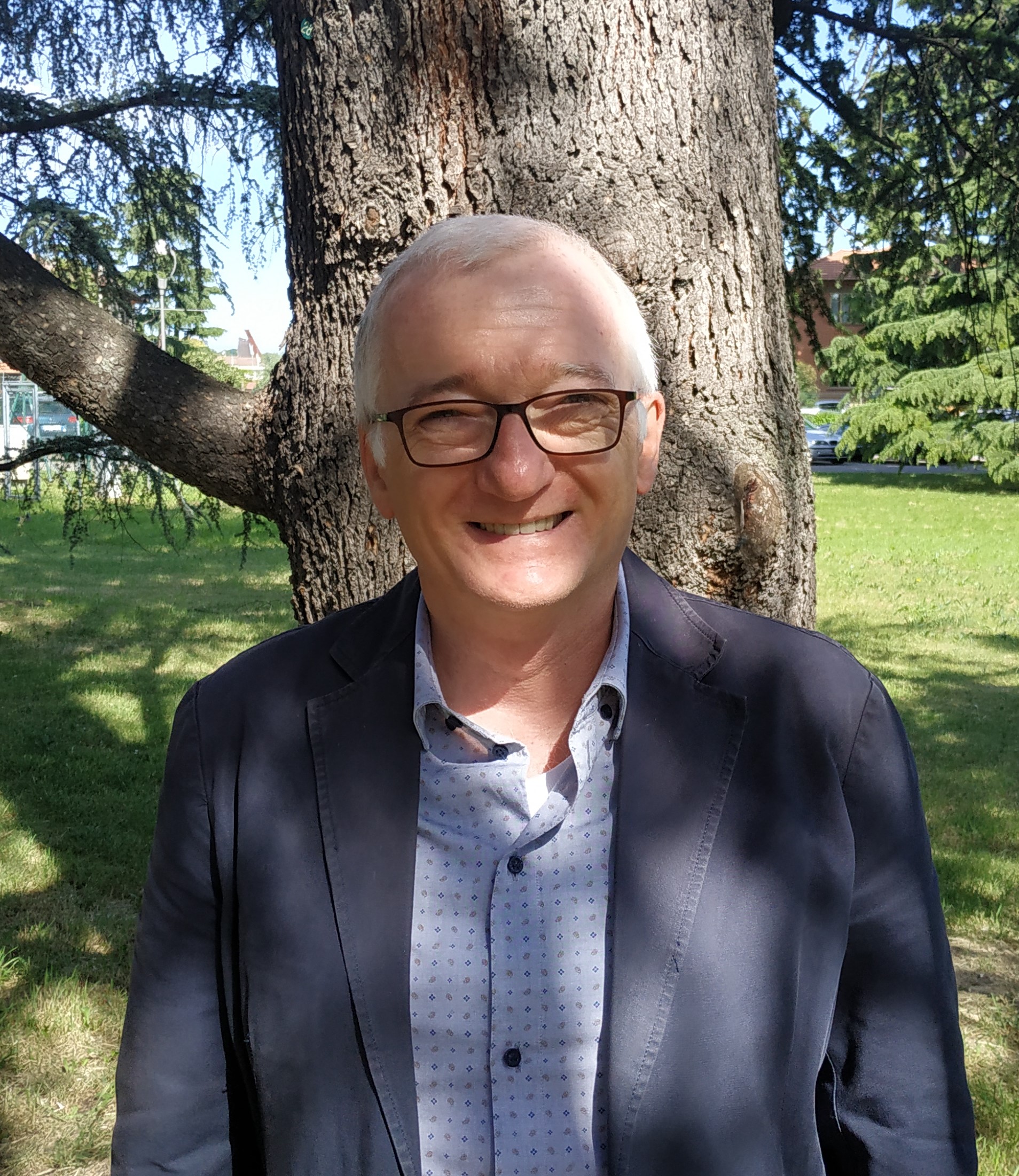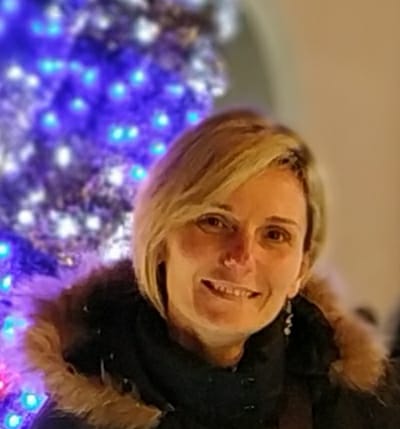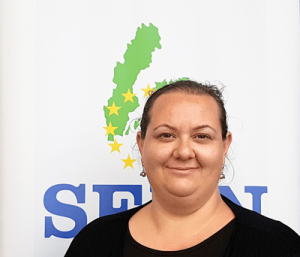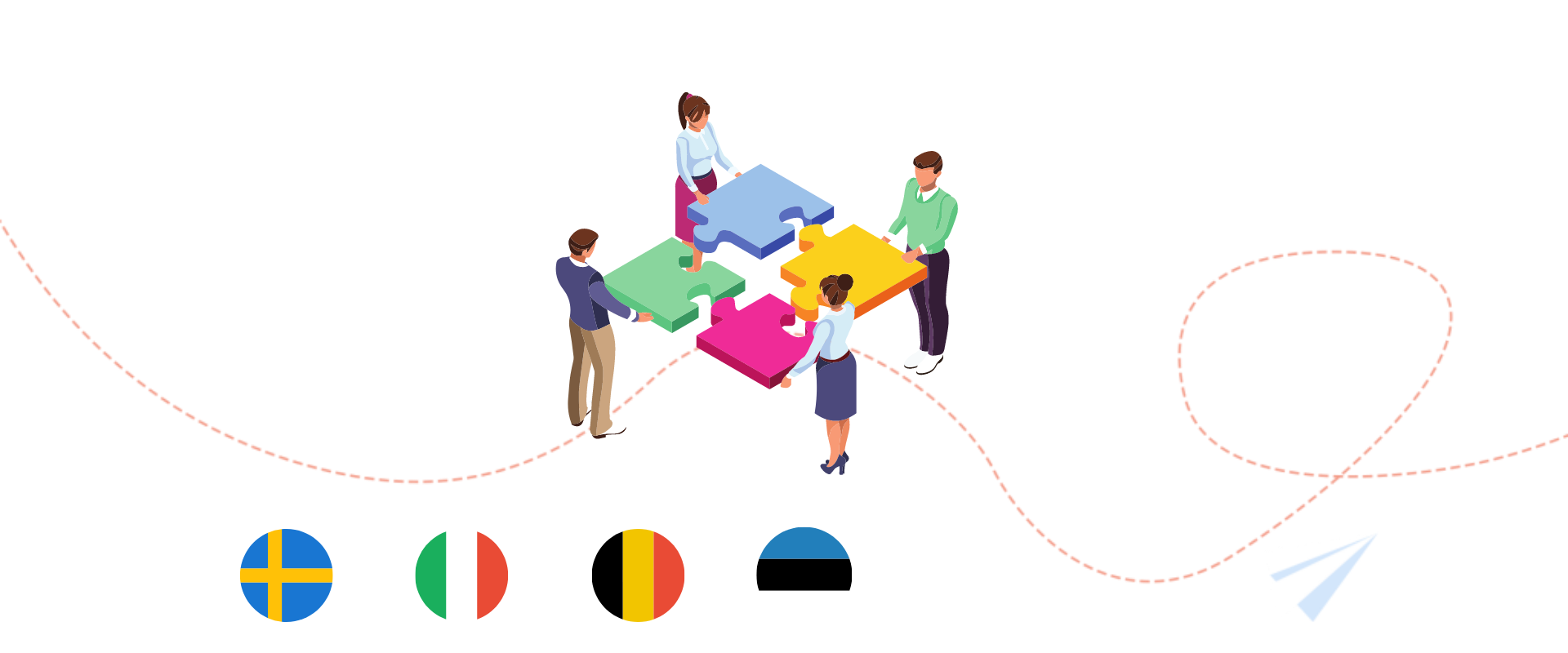
Discover the partnership:
MUNICIPALITY OF PITEÅ.
Piteå is a municipality situated on the Gulf of Bothnia, 900 km north of Stockholm and 100 km south of the Arctic Circle. With 41,000 residents it makes a significant contribution to the 260,000 population of the County of Norrbotten. Piteå focuses on energy and sustainable development and offers good development opportunities for people and companies. In recent years, Piteå has broadened its industry by supplementing its important basic industry with an infrastructure for a growing service sector. Right now, there is strong growth in the energy field where many years of research is now attracting national and international attention. The activities of the Municipality of Piteå are based on vision, strategic areas, goals and goal indicators and the Municipal Council uses the operational plan and other control documents such as interim and annual reports for control and follow-ups within this structure. The education office runs preschool and school activities that are available to all children and young people and it is responsible for the education of approx. 8000 children and pupils. Quality in the schools and pre-schools is a prioritized issue in the municipality and for the last years Piteå has been at the top when the teacher union has chosen “Best school municipality of the year” The education department has its own research unit and a strong cooperation with Luleå University of Technology (LTU). LTUs main campus is situated in Luleå about 50 km northeast of Piteå. Pre-school in Piteå focus a lot on reading and writing as well as outdoors activities. There is also a strong believe that the cooperation parents will have a significant influence on the quality in pre- schools. We also focus a lot on the cooperation between the compulsory school and free-school. In this project Bergsvikens preschool will be the main participant. Bergsvikens pre-school is one of the pre-schools in the municipality and it is situated 7 km south of the Centre of Piteå. It is divided into three units and a total of 11 departments. Within each unit there are children aged 1-5 years, divided by age. Bergsviken pre-school has about 170 children and a total of 40 pre-schoolteachers.Bergsviken is a homogeneous area with some influences from other cultures.
Bergsvikens Preschool Gitte.Franzen@pitea.se
Göran Dahlén
Piteå Municipality Goran.Dahlen@pitea.se
MUNICIPALITY OF IMOLA
Imola is a middle-size town of about 70,000 inhabitants. It is in Emilia Romagna Region, close to Bologna, along the track of the ancient roman Emiliae Road. The Municipality of Imola manages through its Early Childhood Educational Service Unit (hereinafter ECESU) - 7 preschools, 5 nursery schools and 1 experimental service for children from 5 month to 6 years old, for about 950 children as a whole, of which 180 belonging to foreign families and 31 with severe special needs. 110 curricular teachers, 22 special teachers, about 25 alternative teachers, 50 janitors, 5 cooks and 3 pedagogues work in these schools as a whole. Our services have the same curriculum framework, but each of them can develop its own approach and best practices, provided that this does not question the common curriculum. In addition, ECESU manages also the “Family Centre”, a service that provides many opportunity for the families with young children: Families Day Care Centers, trainings and consultancies for parents, family mediation for parents involving in a divorce process, counseling and information for families and so forth. ECESU also collaborate long since with the local public Library (hereinafter BIM), that has a specialized section for children 0-14 years old, called “Casa Piani”. This Library for children has a headquarter in the down-town, and four decentralized offices in the suburban neighborhoods. All these services are open every day (save on Sunday), lends books, organize workshops, guided readings, new books presentations, lectures of famous writers in the field of childhood publishing, and so forth. Some our pre and nursery schools have arranged an internal little library, open not only for the families of the children attending the relative services, but also to all the children and families living in the surroundings. In addition, ECESU coordinates a group called "stable panel for the educational continuity from 0 to 6 years old", where all the public and private pre and nursery schools administrations of the discrict (10 Municipalities) are represented. This group, in addition to promote exchanges among pre and nursery schools and several cultural public events, arranges the yearly training plan for all the teachers and educators working in these services (the potential beneficiaries of these activities in about 500 teachers and educators). For these reasons, the activities and the outputs of the project object of this application can be spread on a relevant number of stakeholders and be an object of future training plans involving a relevant number of professionals.
ELMER
As a ECEC neighbourhood service, Elmer organizes social day-care (3 months – 3,5 years) and has 4 branches in the most underprivileged areas of the Brussels Region. Elmer aims to reach a socio-cultural mix of families living in the neighbourhood and focuses especially on vulnerable families. Elmer enables the wellbeing of each child, offers rich opportunity to develop and stimulates connectedness. Parent participation is a keystone in the work of Elmer. The parents are the first educators, together we are co-educating the children. Elmer aims to work on social participation of parents and organizes opportunities for young parents to meet and share experiences. In the neighbourhood, Elmer is an active partner in common activities. Elmer also initiates a family centre as an integrated service. As centre for inclusion, Elmer gives particular attention to children with special needs and supports their families. Elmer combines the ECEC-service with employment and training of educators – often recruited out of the group of parents. The team of Elmer is very diverse, as are the children and their families.
TALLINN MEELESPEA KINDERGARDEN
Tallinn Meelespea Kindergarten is located in Haabersti district in Tallinn capital of Estonia. Tallinn Meelespea Kindergarten is municipal organisation that follows the national curricula for preschool child care institutions and kindergartens´ curricula that is specifically formulated for the purpose. Estonian Ministry of Education and Research states that the national curriculum for preschool child care institutions follows the Scandinavian approach of combining different child-centred active learning methods such as “Step by Step”, the Montessori method, the Waldorf method of teaching, Reggio Emilia, language immersion as well as research, entrepreneurship and outdoor learning. Tallinn Meelespea Kindergarten is 41 years old, we have 51 staff members and 270 children. There are 13 groups in our kindergarten– 3 groups where children are from 1,5 to 3 years old, 2 groups where the children are 3-4 years old, 2 groups where the children are 4-5 years old, 2 groups with 56 years old, 2 groups with 6-7 years old and 2 groups consist children from 3 to 7 years. We have swimming pool, art class with ceramic oven for clay work, big hall for music and physical education classes, great indoor and outdoor environment to support childrens´ educational development. Our kindergarten name comes from the forget-me-not flower, that represents faithfullness and love. Our vision is to be childfriendly, health promoting, safe and creative environment where we can fulfill our mission to establish, through cooperation between parents and teachers, the conditions needed for childs´ comprehensive development. Our fundamental values are respect, health, consideration, tolerance and creativity..
ALMA MATER STUDIORUM - UNIVERSITA DI BOLOGNA.
The Department of Psychology - Alma Mater Studiorum University of Bologna - offers one undergraduate, five graduate programmes and one PhD Programme. We currently create and deliver innovative, exciting and challenging undergraduate and postgraduate degree courses to over 600 students. Professors and researchers (59 members) are involved in research and education activities covering different fields of psychology.We are active in research and development having a reputation for being involved in several competitive research projects on both a national and international scale. Active international projects (2018) : BRIGAID: BRIdges the GAp for Innovations in Disaster resilience; Funded by the European Commission under the H2020 Programme (2015-2018). Call climate. XCYCLE Project;Funded by the European Commission under the H2020 Programme (2015-2018) Call Transport Catch EyoU project - Constructing AcTive CitizensHip with European Youth: Policies, Practices, Challenges and Solutions;Funded by the European Commission under the H2020 Programme (2015-2018) - Call YOUNG-SOCIETY-2014.
SWEDEN EMILIA-ROMAGNA NETWORK
SERN is a transnational network of 56 local and regional authorities in Sweden and Italy, particularly in the Emilia-Romagna area. The network was founded in February 2005 with the main objective of developing in a structural manner the relations between its members in the two countries. The main objective is to foster relations and exchanges of good practices among the members and therefore to create a model of cooperation stretching over several policy areas and involving different level of government and at the same time a plurality of actors like educational institutions and NGOs. It has been leading several transnational projects aimed at capacity building of local and regional authorities when it comes to the management and planning of transnational projects. The network has adopted a strategy in 2011 that provides particular attention to the development of processes of cooperation among the members in the field of the ECEC. The network counts many links with other networks/association of local and regional organisations in 10 European countries and therefore offers a large basis of dissemination. SERN has been the coordinating organization of CREANET, a Comenius Multilateral Network started in late 2010. The project has been dealing with the theme of Creativity in preschool in ECEC. In the context of the project the theme of physical activity in the pre-school context as a tool to foster creativity in children has emerged as an important element and area of work.
